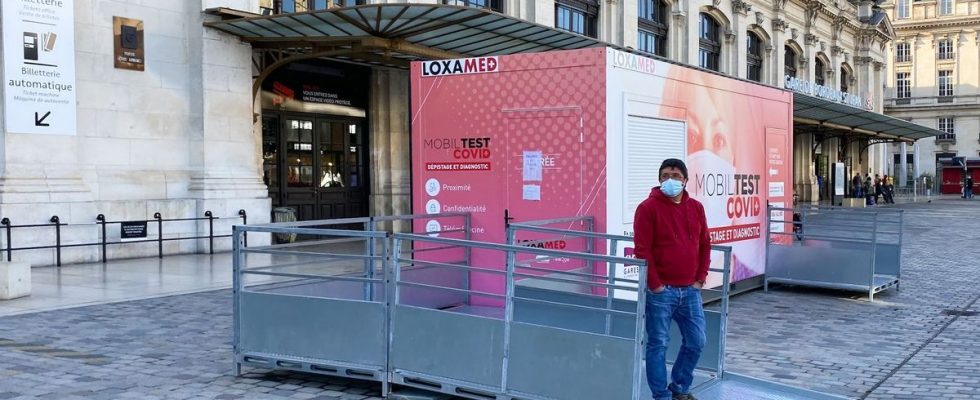Published on
Updated
Reading 2 min.
The National Order of Physicians is severely attacking the SNCF and its plan to develop teleconsultation booths on the squares of 300 stations in France. Same scathing condemnation from the doctors’ union UFML-Syndicat. Why such an outcry?
SNCF announces the installation of teleconsultation booths in 300 stations
The idea seemed attractive. “Ten million people pass through stations every day and 90% of the population lives less than 10 km from a station,” says Raphaël Poli, retail general manager at Gares et Connexions. The stations selected to benefit from the system will be “located in priority intervention zones (ZIP) and concerted development zones (ZAC), characterized by an insufficient supply of care and difficulty in accessing care“, or 1,735 potential stations, explained SNCF Gares et Connexions in a press release.
Associated with Loxamed which had already installed Covid-19 screening centers on the forecourts of major French stations at the end of 2020, the SNCF specified that the telemedicine spaces will be installed in “15 m2 boxes on the station forecourts, during work in the stations” with a state-certified nurse always present on site and doctors remotely but practicing on French territory.
The Order of Physicians and a union cry out for the commodification of medicine
The reaction of the Council of the Order of Physicians was quick. Expressing a “very deep concern about the development of such commercial and economic activity in Health, an element of its financialization already at work” ; the CNOM denounces a “real deregulation of our health system“According to doctors, this offer confirms real inequalities in access to care,”with certain territories which will be considered a little more second-rate, not counting those far from any station“.
In more flowery language, the UFML-Union of general practitioners and specialists denounces “the stranglehold of financialization on care only aims to develop very lucrative low-cost medicine for these companies which are not benefactors of suffering humanity.” Denouncing the establishment of “cabinafrics”, the union declares “There cannot be good Medicine made from push-button consumption at a distance from a doctor who does not know the patient, his history and who will produce a treatment in five minutes between a sandwich and a station novel…“. Same story for Dr. Gérald KIERZEK, emergency physician and medical director of Doctissimo: “The medicine offered is consumer medicine, passing through, without follow-up or clinical examination of patients. This uberization of practices is harmful for the quality and safety of care and for prevention. It would be better to question the reasons why doctors no longer want to settle in these medical deserts and deserts of public services and transport. The SNCF may also have some responsibility.“.
Doctors expect efforts from the State to improve the attractiveness of their profession
The CNOM also judges that this could divert health professionals.who will thus be less available to practice in the most vulnerable territories” and regrets that Health Insurance favors the reimbursement of these acts rather than upgrading the usual acts of doctors, contributing to the lack of attractiveness of a profession whose strikes are increasing.
In conclusion, the Order of Physicians finally tackles the SNCF by calling on it to “improve rail service to the most isolated territories, a real challenge for the attractiveness of territories with regard to the installation of health professionals. Territorial planning is an essential condition for their attractiveness“.
